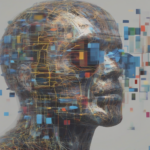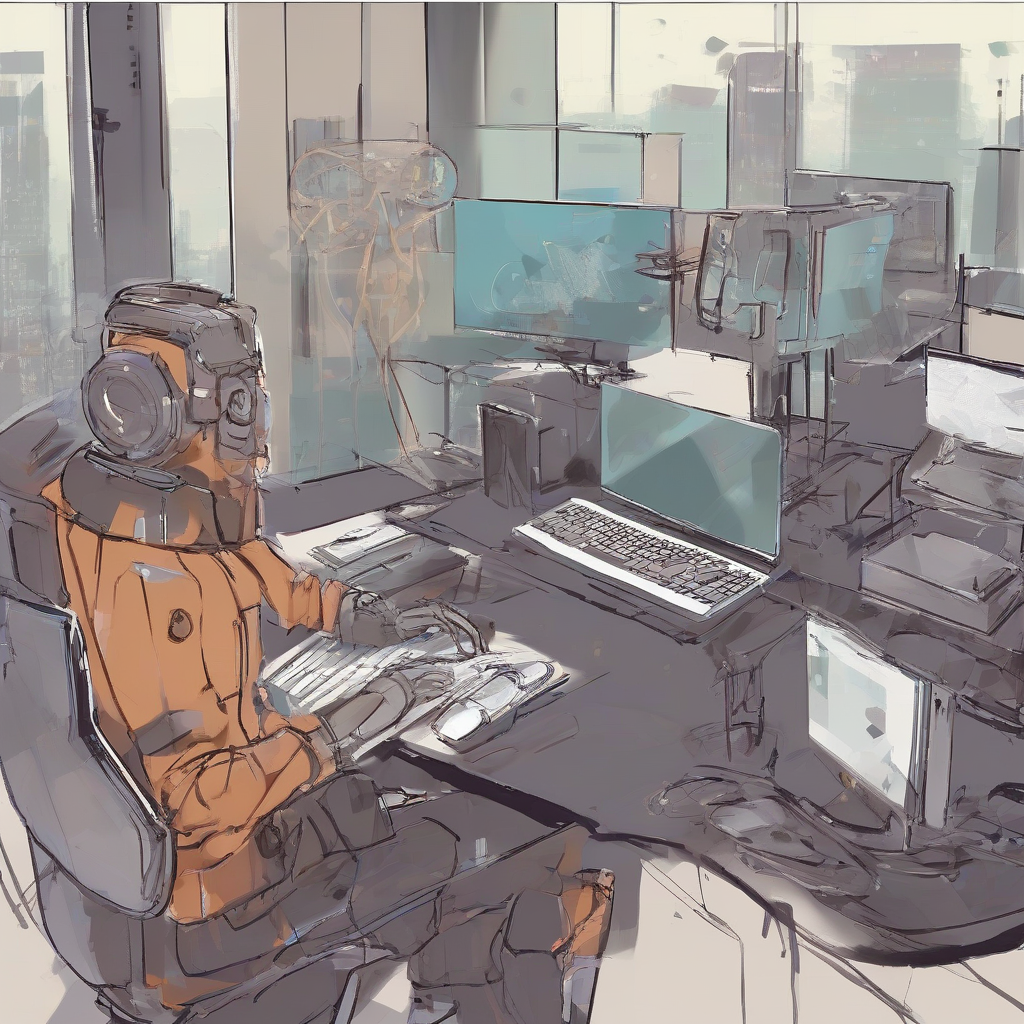The Future of Trading: A Comprehensive Look at Emerging Trends and Technologies
The world of trading is constantly evolving, driven by technological advancements, changing market dynamics, and evolving investor preferences. As we look towards the future, it is clear that the trading landscape will undergo significant transformations, shaping the way individuals and institutions invest and manage their assets.
This article will delve into the key trends and technologies that will define the future of trading, exploring the opportunities and challenges they present. From the rise of artificial intelligence and machine learning to the increasing adoption of blockchain and decentralized finance, we will examine how these innovations are reshaping the industry and empowering traders with unprecedented capabilities.
The Rise of Algorithmic Trading and Artificial Intelligence
Algorithmic trading, driven by powerful algorithms and advanced computing capabilities, has revolutionized trading, enabling automated execution of trades based on pre-defined strategies. The use of AI in trading has further amplified this trend, with machine learning algorithms capable of analyzing massive datasets, identifying patterns, and making real-time trading decisions with greater speed and accuracy than humans.
- Enhanced Decision-Making: AI algorithms can analyze vast amounts of data from various sources, including market data, news feeds, and social media sentiment, to identify patterns and insights that human traders might miss. This ability to process and interpret information quickly and effectively empowers traders to make more informed decisions.
- Automated Execution: Algorithmic trading allows for the automated execution of trades based on pre-defined strategies, eliminating the need for manual intervention and reducing the risk of emotional bias. This automation enables traders to manage their portfolios more efficiently and capitalize on market opportunities with greater speed and precision.
- High-Frequency Trading (HFT): AI-powered algorithms are particularly well-suited for high-frequency trading, where transactions are executed at lightning speed. HFT strategies rely on sophisticated algorithms that analyze market data in real-time and execute trades in fractions of a second, taking advantage of fleeting price movements and generating significant returns.
- Personalized Trading Strategies: AI can be used to develop personalized trading strategies tailored to individual investor preferences and risk tolerance. By analyzing an investor’s trading history, investment goals, and risk appetite, AI algorithms can create custom strategies that optimize their portfolio performance.
Blockchain and Decentralized Finance (DeFi)
Blockchain technology, known for its secure and transparent nature, has emerged as a transformative force in the financial industry. Decentralized finance (DeFi), built on blockchain principles, is disrupting traditional financial systems by offering new ways to access financial services, including lending, borrowing, and trading, without intermediaries.
- Tokenization of Assets: Blockchain allows for the tokenization of assets, including securities, commodities, and real estate, making them more easily tradable and accessible to a wider range of investors. Tokenization can increase liquidity, reduce transaction costs, and provide greater transparency and efficiency in the trading process.
- Smart Contracts: Smart contracts, self-executing agreements stored on the blockchain, automate and streamline trading processes, eliminating the need for intermediaries and reducing the risk of fraud or errors. Smart contracts can facilitate peer-to-peer trading, automated order execution, and the secure transfer of assets.
- Decentralized Exchanges (DEXs): DEXs operate on blockchain networks, enabling users to trade cryptocurrencies directly with each other without the need for a central authority. DEXs offer greater anonymity, security, and control over assets compared to traditional centralized exchanges.
- Yield Farming and Liquidity Pools: DeFi platforms offer innovative mechanisms for earning returns on crypto assets, such as yield farming and liquidity pools. These platforms allow users to provide liquidity to the market and earn rewards in the form of interest or tokens.
Emerging Trends in Trading
In addition to AI and blockchain, several other trends are shaping the future of trading:
1. The Rise of Social Trading
Social trading platforms allow traders to connect, share ideas, and copy each other’s trading strategies. These platforms provide a valuable source of information, education, and peer support for traders of all levels of experience.
- Access to Expert Insights: Social trading platforms connect traders with experienced professionals and experts, enabling them to learn from their strategies and insights.
- Community-Driven Learning: Traders can engage in discussions, share ideas, and learn from each other within a supportive community, fostering a collaborative learning environment.
- Copy Trading: Social trading platforms offer copy trading functionalities, allowing investors to automatically copy the trades of successful traders. This feature enables novice traders to learn from experienced traders and benefit from their expertise.
2. The Growing Importance of Data Analytics
Data analytics plays a crucial role in modern trading, providing insights into market trends, investor sentiment, and other critical factors that influence investment decisions. The use of advanced data analytics tools and techniques enables traders to make more informed and data-driven decisions.
- Market Trend Analysis: Data analytics tools can analyze historical market data to identify trends, patterns, and anomalies, providing traders with insights into market direction and potential opportunities.
- Sentiment Analysis: Sentiment analysis techniques can analyze news articles, social media posts, and other sources of information to gauge investor sentiment and its potential impact on market movements.
- Risk Management: Data analytics can be used to assess risk factors, identify potential threats, and develop strategies for mitigating risk. This enables traders to manage their portfolios more effectively and minimize potential losses.
3. The Integration of Mobile Trading
Mobile trading apps have become ubiquitous, empowering traders to access financial markets from anywhere at any time. These apps offer a wide range of features and functionalities, including real-time market data, order execution, and portfolio management.
- Accessibility and Convenience: Mobile trading apps provide traders with 24/7 access to financial markets, allowing them to monitor their portfolios, execute trades, and stay informed about market developments from their mobile devices.
- Personalized Trading Experience: Many mobile trading apps offer personalized features, such as custom dashboards, news alerts, and trading notifications, tailoring the user experience to individual needs and preferences.
- Enhanced Trading Tools: Mobile trading apps are constantly evolving, incorporating advanced trading tools such as charting packages, technical indicators, and real-time market analysis.
4. The Rise of Robo-Advisors
Robo-advisors are automated investment platforms that use algorithms to provide investment advice and manage portfolios based on individual investor goals and risk tolerance. These platforms offer low-cost, personalized, and data-driven investment solutions.
- Automated Portfolio Management: Robo-advisors automate the portfolio management process, rebalancing portfolios according to predefined rules and risk parameters.
- Personalized Investment Strategies: Robo-advisors create personalized investment strategies based on investor goals, risk tolerance, and financial situation.
- Cost-Effective Solutions: Robo-advisors typically charge lower fees than traditional financial advisors, making them accessible to a wider range of investors.
Challenges and Opportunities in the Future of Trading
While the future of trading holds immense promise, it also presents challenges that traders and investors need to be aware of:
1. Regulatory Uncertainty
The rapid evolution of trading technologies and the emergence of new financial products and services have created regulatory uncertainty in many jurisdictions. Regulators are still grappling with how to effectively oversee these new developments and ensure market stability and investor protection.
- Regulation of AI and Algorithmic Trading: Regulators are exploring how to regulate AI and algorithmic trading, addressing concerns about market manipulation, transparency, and systemic risk.
- Regulation of DeFi and Cryptocurrencies: The regulatory landscape for decentralized finance and cryptocurrencies is still evolving, with many countries struggling to define clear regulations and ensure consumer protection.
2. Cybersecurity Risks
The increasing reliance on technology in trading has exposed the industry to cybersecurity risks, with hackers constantly seeking to exploit vulnerabilities and gain access to sensitive data and financial assets.
- Data Breaches: Data breaches can lead to the theft of sensitive information, such as account credentials, trading strategies, and personal data, exposing traders to financial losses and reputational damage.
- Market Manipulation: Hackers can manipulate market data or disrupt trading systems, causing volatility and financial losses for traders.
- Security of Crypto Assets: Cryptocurrency exchanges and wallets are vulnerable to hacking attacks, which can result in the loss of digital assets for investors.
3. The Need for Continuous Learning and Adaptation
The rapid pace of innovation in the trading industry requires traders to constantly learn and adapt to new technologies and market trends. Failure to keep up with the evolving landscape can put traders at a disadvantage.
- Upskilling and Reskilling: Traders need to acquire new skills and knowledge in areas such as data analytics, AI, blockchain, and cybersecurity to remain competitive.
- Adapting to New Trading Platforms: The rise of new trading platforms, including social trading platforms, mobile apps, and DeFi protocols, requires traders to learn how to use these tools effectively.
- Staying Informed About Market Trends: Traders need to stay abreast of evolving market dynamics, regulatory changes, and technological advancements to make informed investment decisions.
Opportunities in the Future of Trading
Despite the challenges, the future of trading holds immense opportunities for individuals and institutions:
1. Enhanced Efficiency and Cost Savings
Technological advancements in trading are driving greater efficiency and cost savings, enabling traders to manage their portfolios more effectively and reduce trading expenses.
- Automated Trading: Algorithmic trading and robo-advisors automate trading processes, reducing the need for manual intervention and saving time and costs.
- Reduced Transaction Costs: Blockchain and DeFi technologies are reducing transaction costs, making trading more affordable for a wider range of investors.
- Increased Liquidity: Tokenization of assets and the rise of decentralized exchanges are increasing liquidity in financial markets, enabling traders to execute trades more easily and at more favorable prices.
2. Increased Accessibility and Democratization of Finance
Technological advancements are breaking down barriers to entry in the financial markets, making trading more accessible and democratic for a broader range of individuals.
- Mobile Trading: Mobile trading apps empower traders to access financial markets from anywhere at any time, regardless of their geographic location.
- Robo-Advisors: Robo-advisors provide low-cost, personalized investment solutions, making financial advice accessible to individuals who might not have the resources to hire traditional financial advisors.
- Decentralized Finance: DeFi platforms offer new ways to access financial services, including lending, borrowing, and trading, without the need for intermediaries.
3. New Investment Opportunities
The emergence of new technologies and financial products is creating new investment opportunities for traders.
- Cryptocurrencies: The rise of cryptocurrencies has created a new asset class with significant potential for growth and volatility.
- Tokenized Assets: Tokenization of assets opens up new investment opportunities in areas such as real estate, commodities, and securities.
- DeFi Products: DeFi platforms offer innovative products such as yield farming and liquidity pools, providing new ways to earn returns on crypto assets.
Conclusion
The future of trading is being reshaped by technological advancements, changing market dynamics, and evolving investor preferences. The rise of AI, blockchain, social trading, and data analytics is creating new opportunities and challenges for traders. As the industry continues to evolve, traders need to stay informed, embrace new technologies, and adapt to the changing landscape to remain competitive and seize the opportunities that lie ahead.








